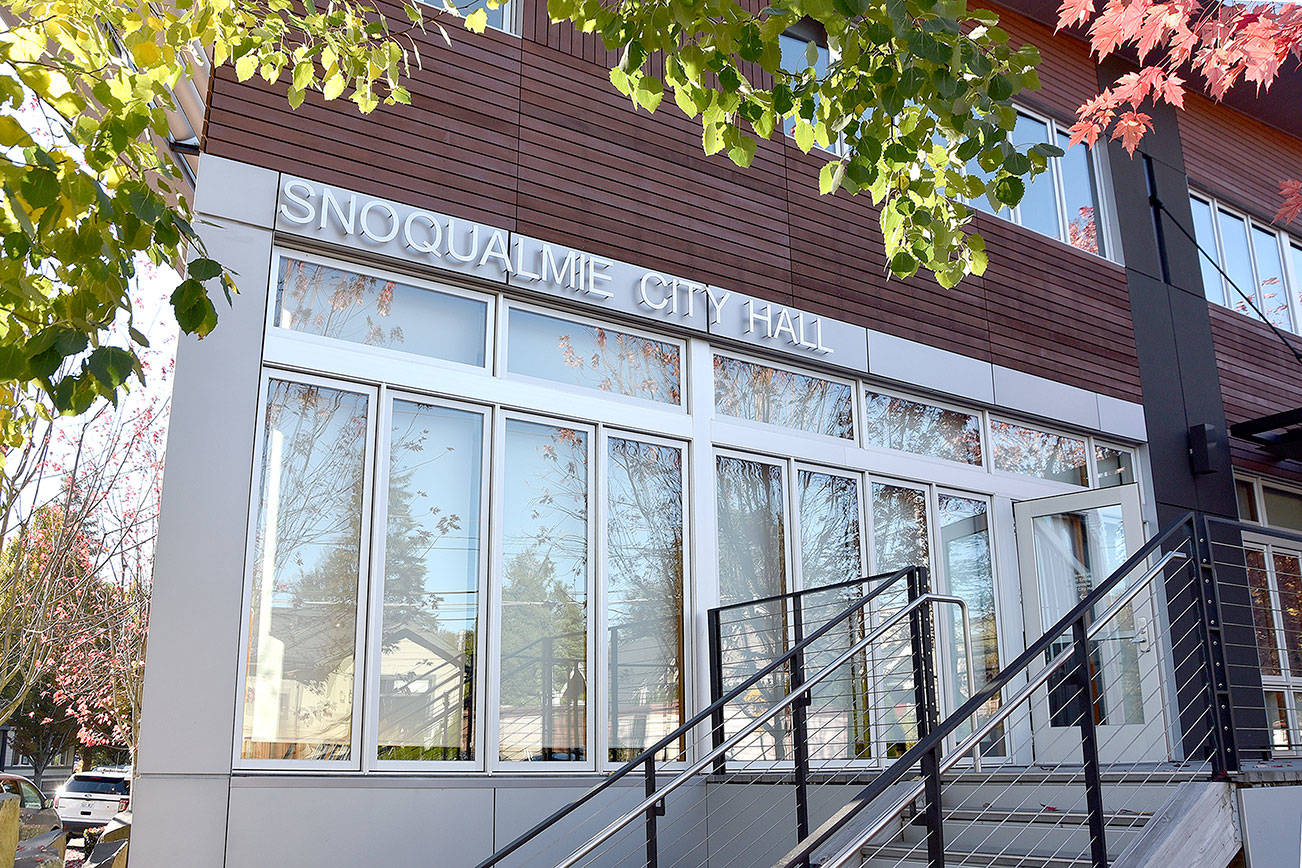The Snoqualmie City Council approved an ordinance on May 14 establishing an independent salary committee for elected officials and an ordinance authorizing the issuance of revenue bonds to fund projects in the Utilities Capital Improvement Plan.
In September 2017, the council approved the updated Utilities Capital Improvement Plan (CIP) for 2017 through 2022, which details several projects across sewer, water and stormwater functions. Monday’s ordinance authorizes the issuance of revenue bonds not to exceed $35.6 million to fund these projects within the next three years. The bond will pay for $24 million in projects already allocated to specific projects, as well as fund more of the CIP projects in the upcoming years.
A specific amount was not approved at the meeting, only the authority to issue a bond. The actual bond amount will be determined by the city finance department, financial adviser and bond counsel at a later date which will then require council approval.
Deanna Gregory, partner at Pacifica Law Group, told the council that the bond will not be funding specific projects but will allow the city to apply the funding to the any of the Utility CIP projects they feel is necessary. However, the city will be also be asked to outline which projects are expected to be financed by the money before the bond is issued.
There was some discussion on the form of the revenue bond as well. Council members Bryan Holloway explained that the Finance and Administration Committee discussed issuing smaller revenue bonds in two year intervals or collecting the projects into one larger bond now to avoid duplicating overhead for the cost of issuance and the higher interest rates of future bonds.
Council member Peggy Shepard said she was not in favor of this ordinance and that she had no confidence based on concerns about warrants approved by the city and was concerned about other bills. She also stated that she wanted to wait until the city heard feedback from consultant Clark Nuber’s examination and consulting regarding methods to improve the city’s financial and contract administration operations.
Holloway said the city is fully staffed and is expected to be able to handle the $30 million worth of projects in the next three years. However, this bond represents a level of project execution that the city has not done before, he said, and a close eye should be kept on all of the projects. He also said the staff has already done a good job of consolidating and combining certain CIP projects to reduce overall costs.
Council member James Mayhew reminded the council that many of these CIP projects are for deferred maintenance in city utilities, many of which in the older parts of the city that need fixes or upgrades before they fail. The ordinance was passed in 6-1 with council member Peggy Shepard voting against.
The council also approved an ordinance establishing an independent salary commission. The commission would meet to set the salary of both the mayor and city council members annually. Currently the Mayor’s salary is reviewed in the annual budget process and can be changed by an budget ordinance, the city council’s salary is set by the city council itself, however council salary has not been altered since 2000.
An independent salary commission would be made up of three Snoqualmie citizens who would conduct research and hold public meetings to determine the salary of elected officials. Other cities that have salary commissions include North Bend, Kirkland, Redmond, and Issaquah. Members will be appointed to the commission every two years and each term length would be three-months from July to September.
Shepard stated she was against the ordinance because she felt there were other topics the council could discuss that were of higher priority.
Council member Matt Laase voiced concern that the length of the term the commission members would serve under would be too short. Following up Laase’s comment, Mayhew said Kirkland and Redmond have the same term limit and their commissions are able to complete their work despite being much larger than Snoqualmie.
The ordinance passed in a 6-1 vote with council member Shepard against.



